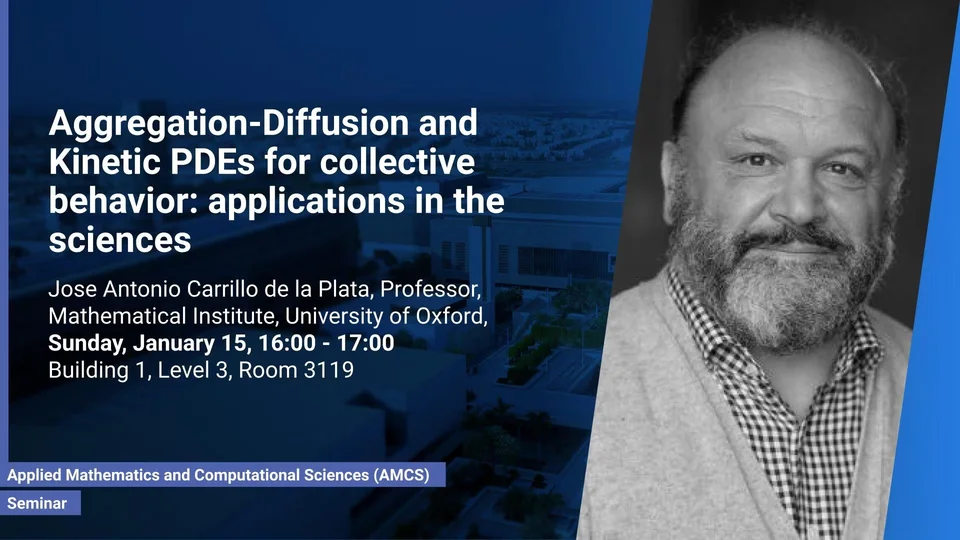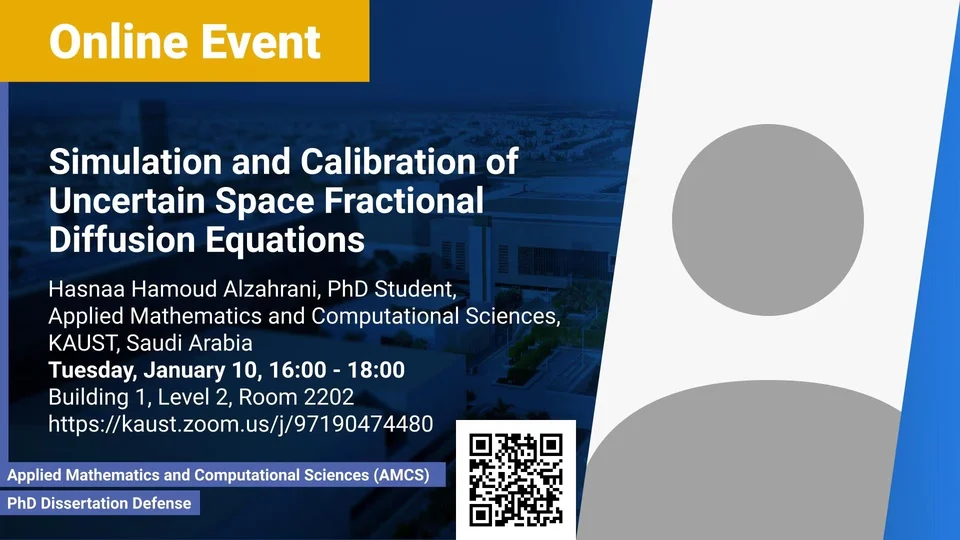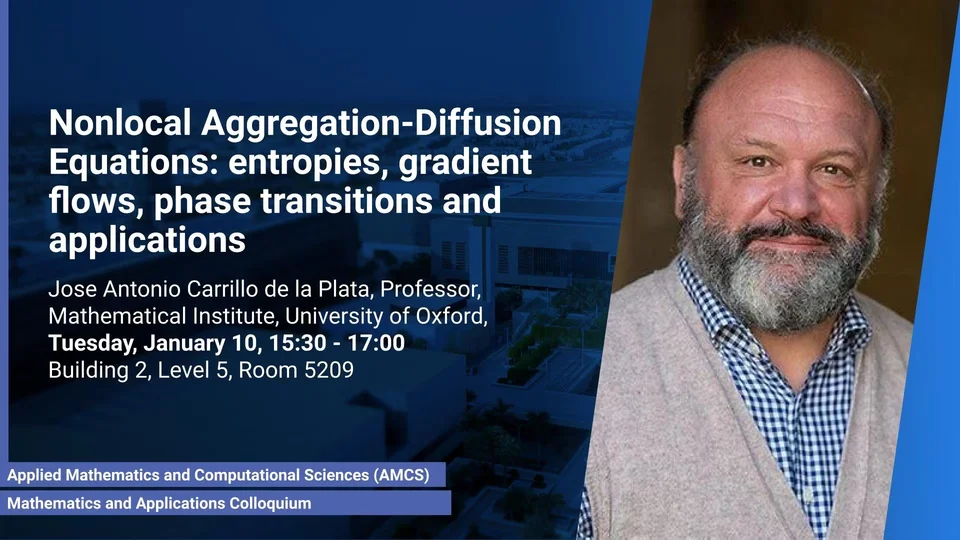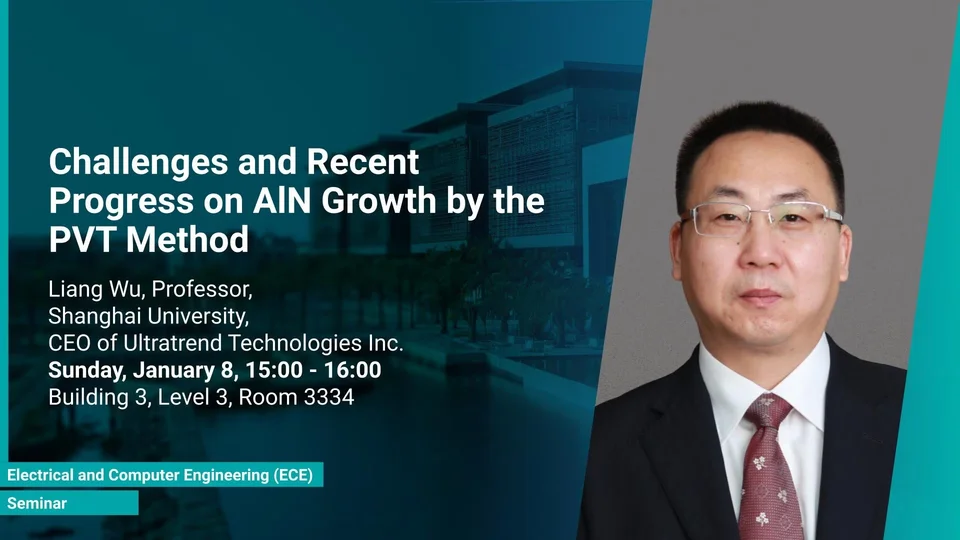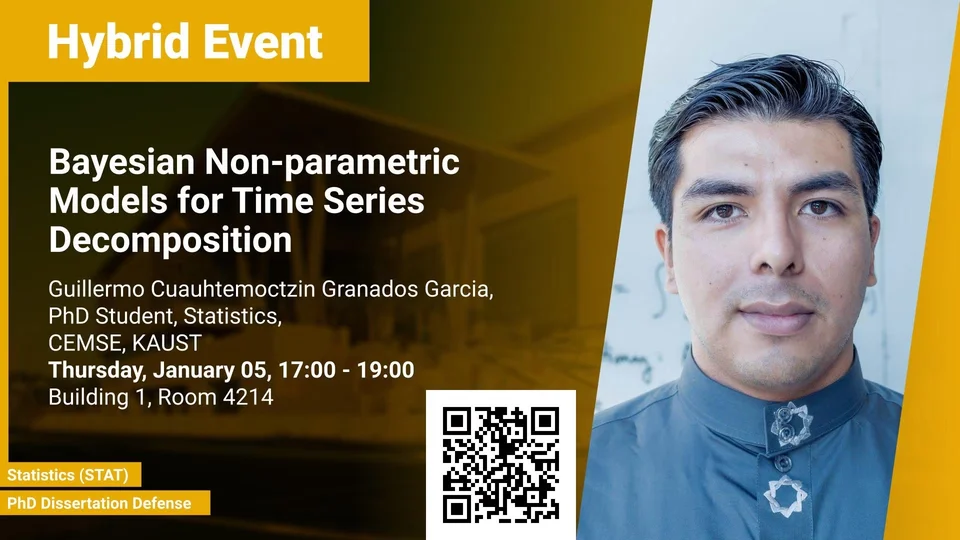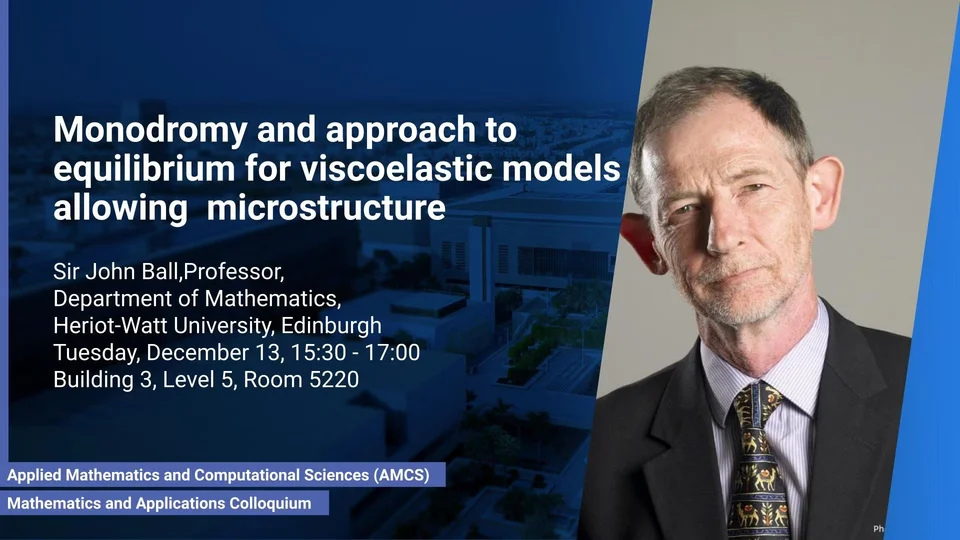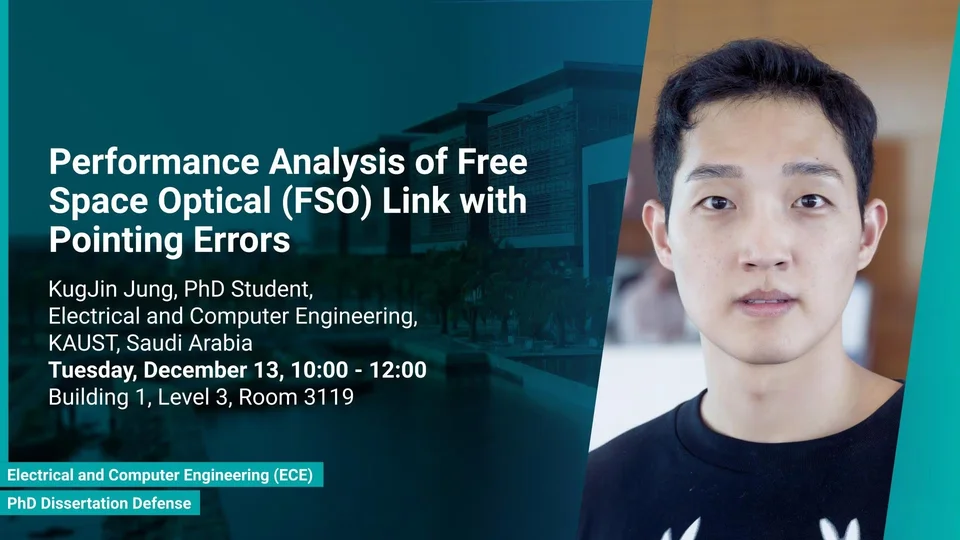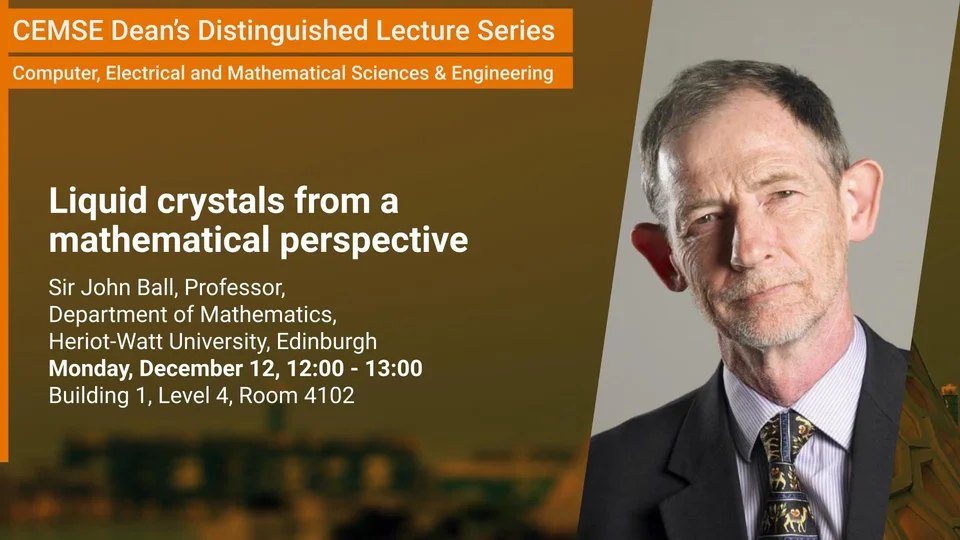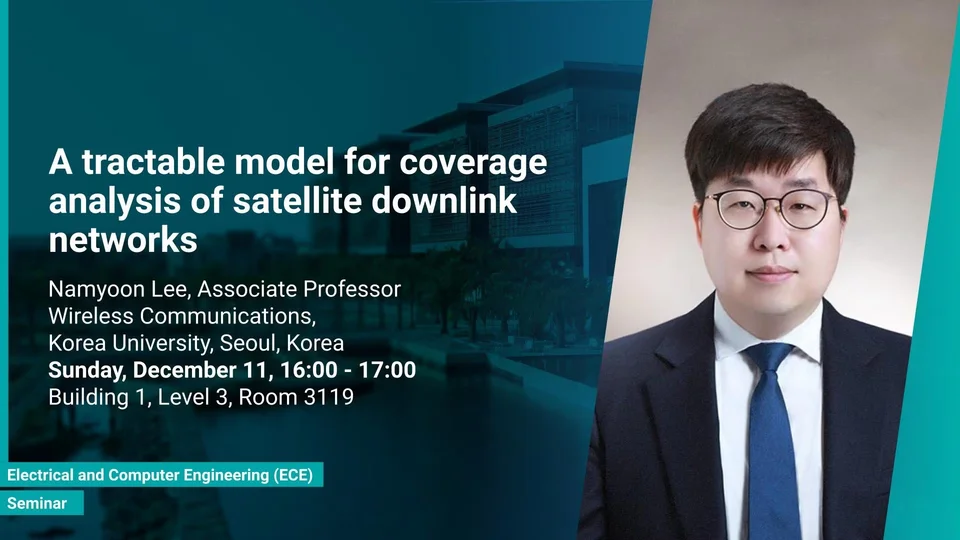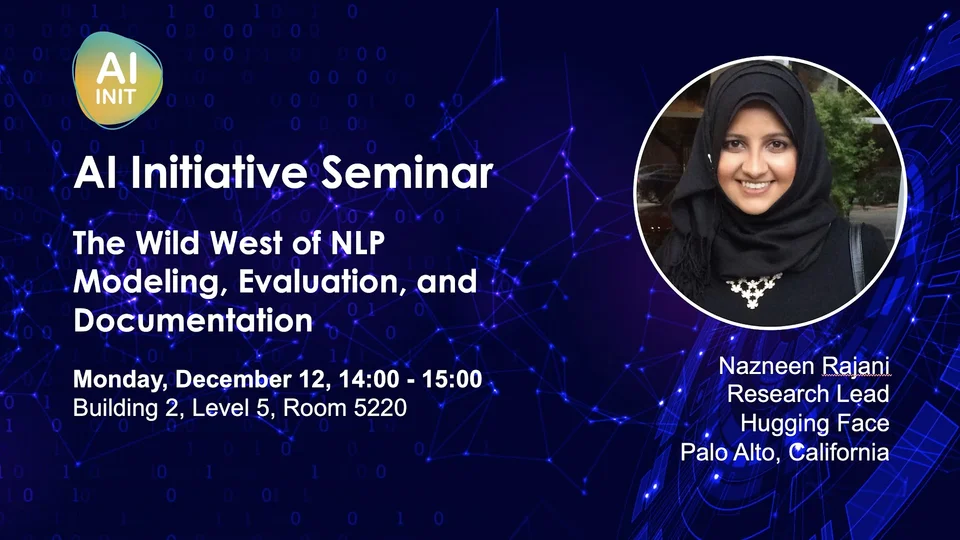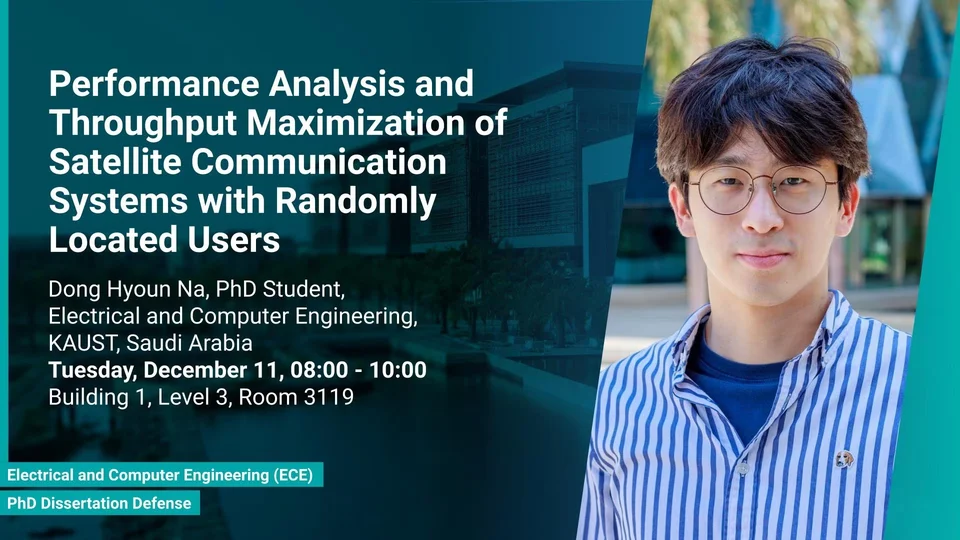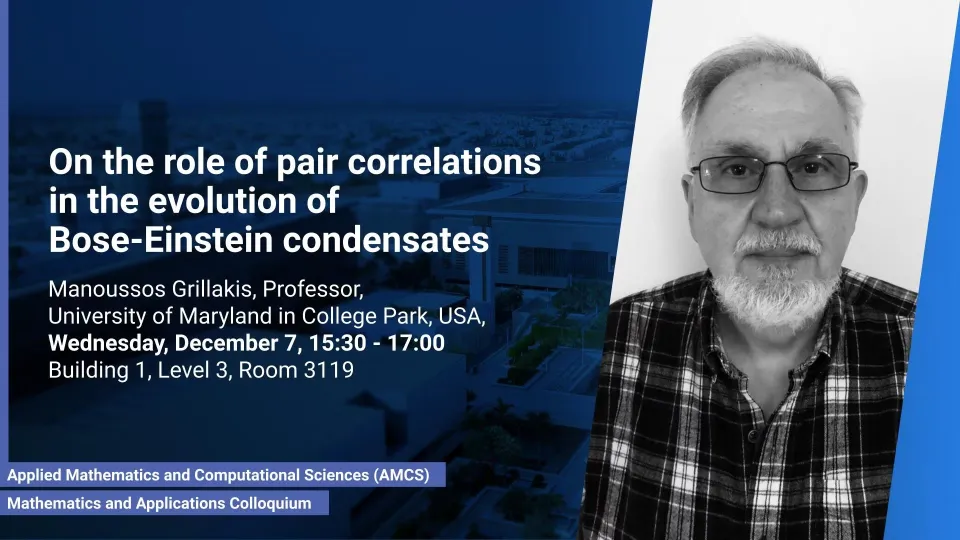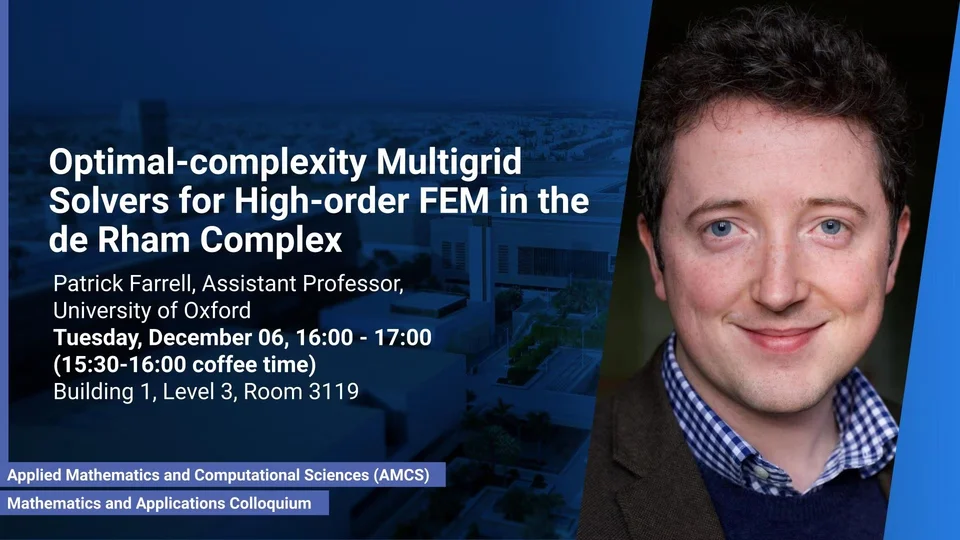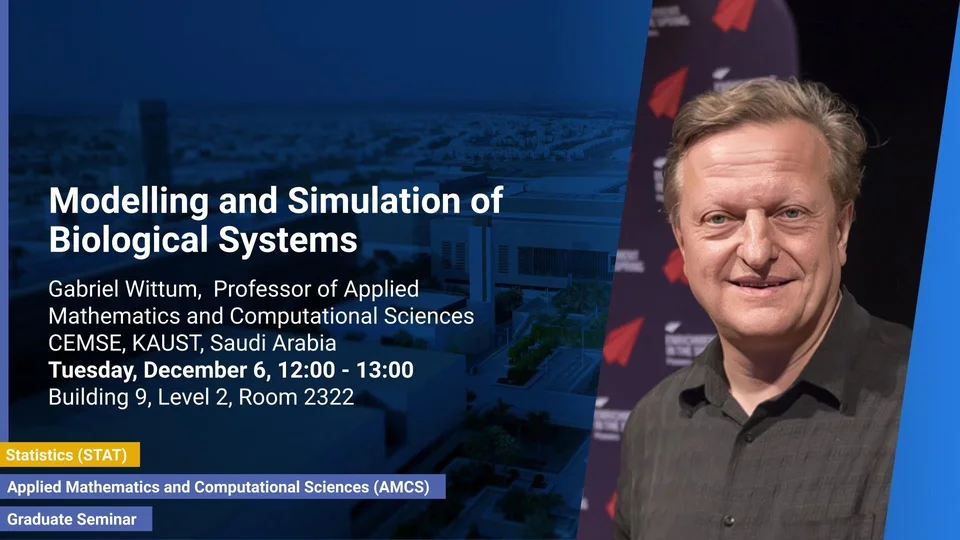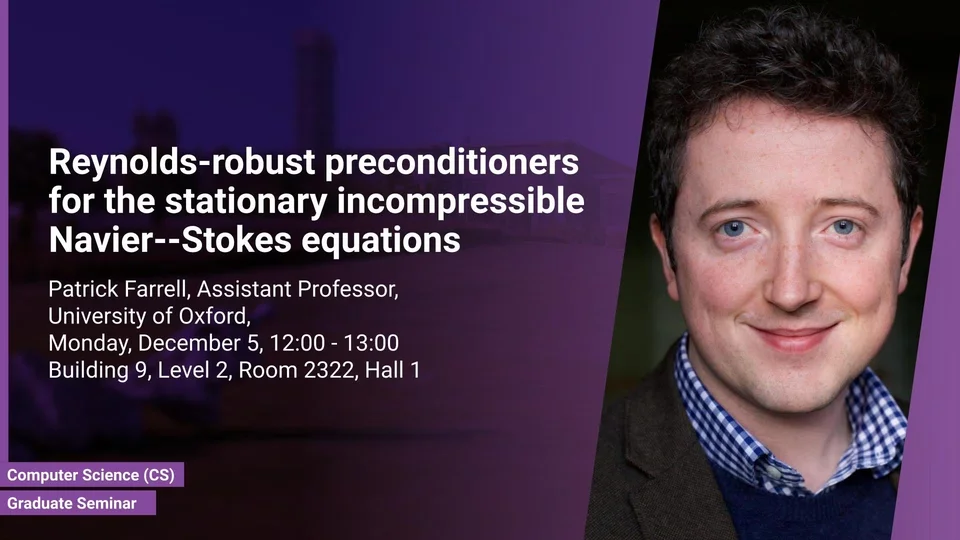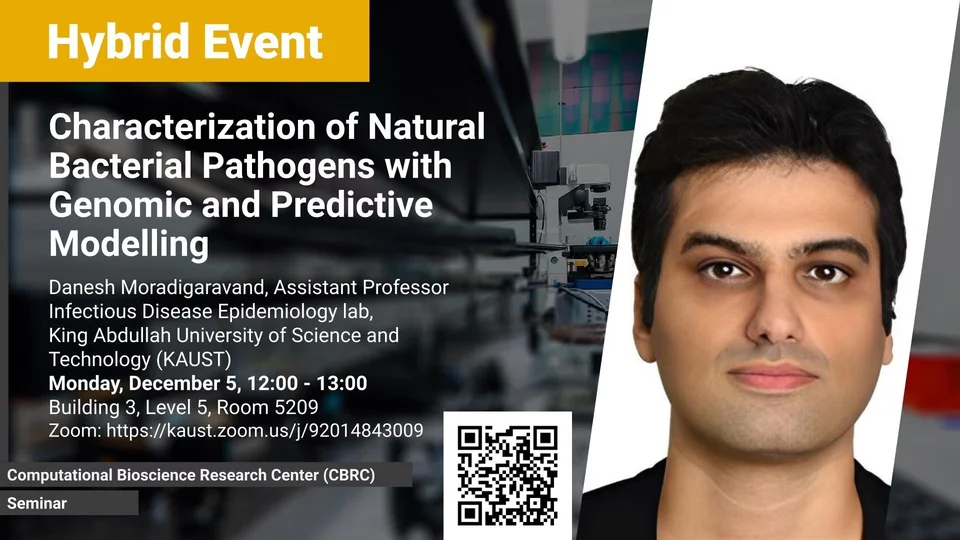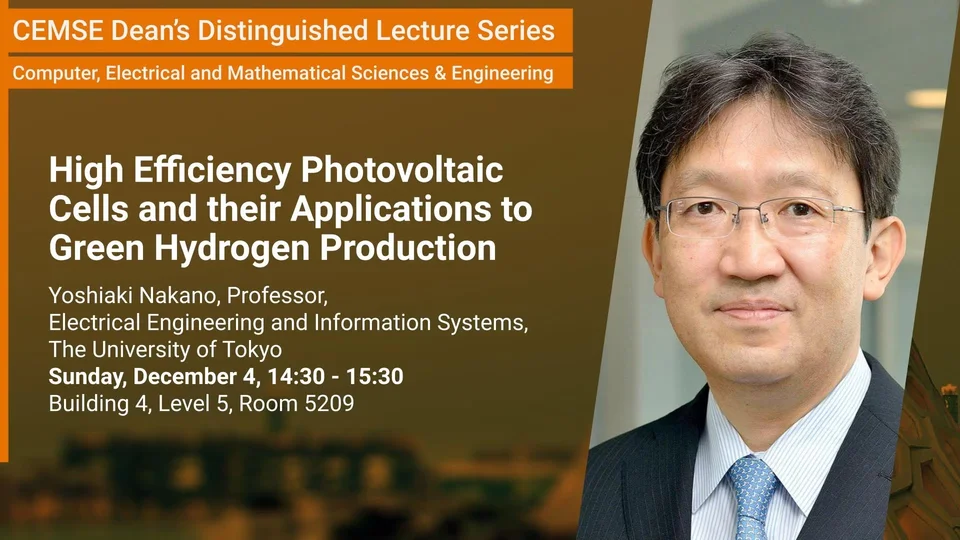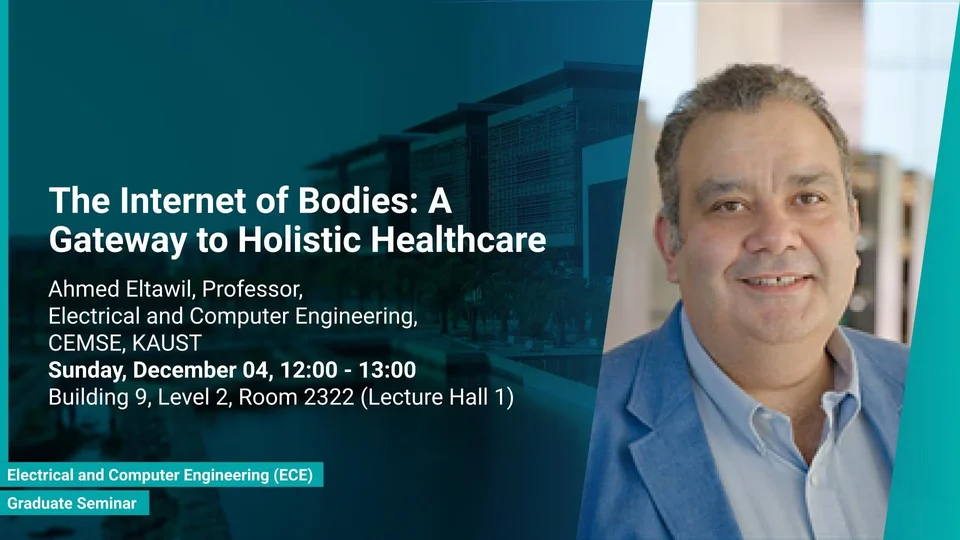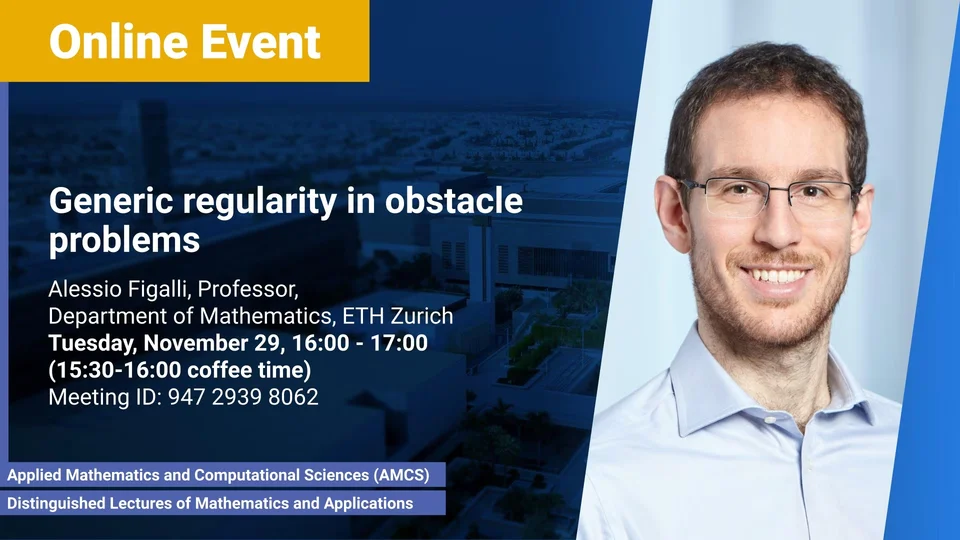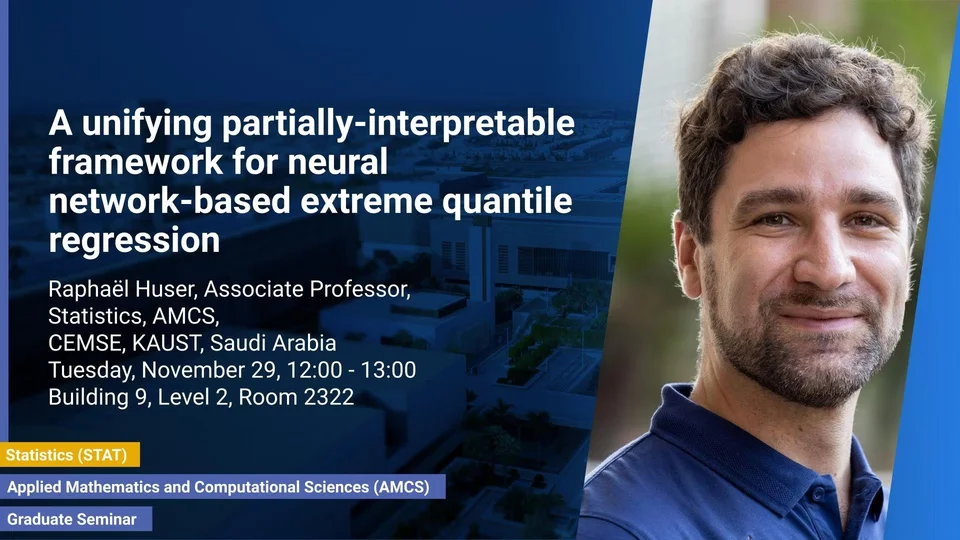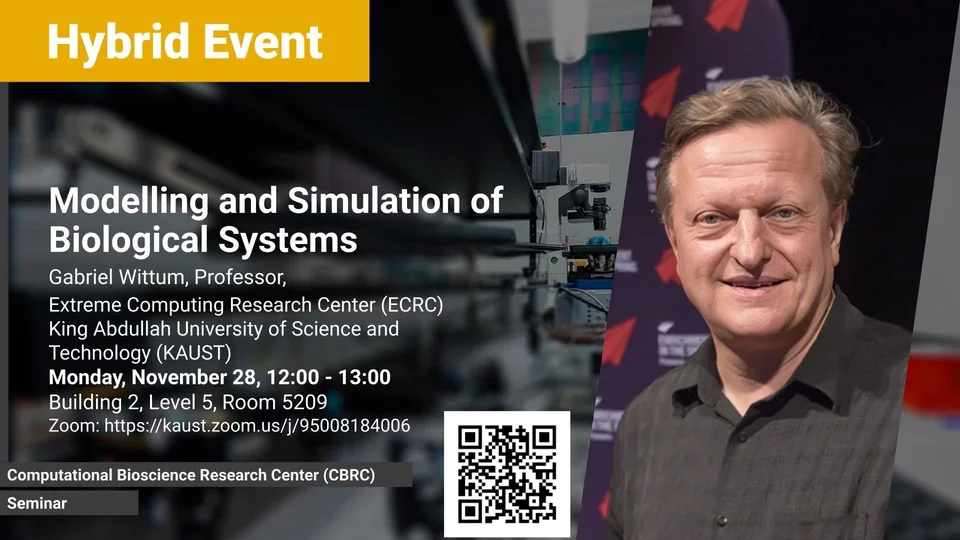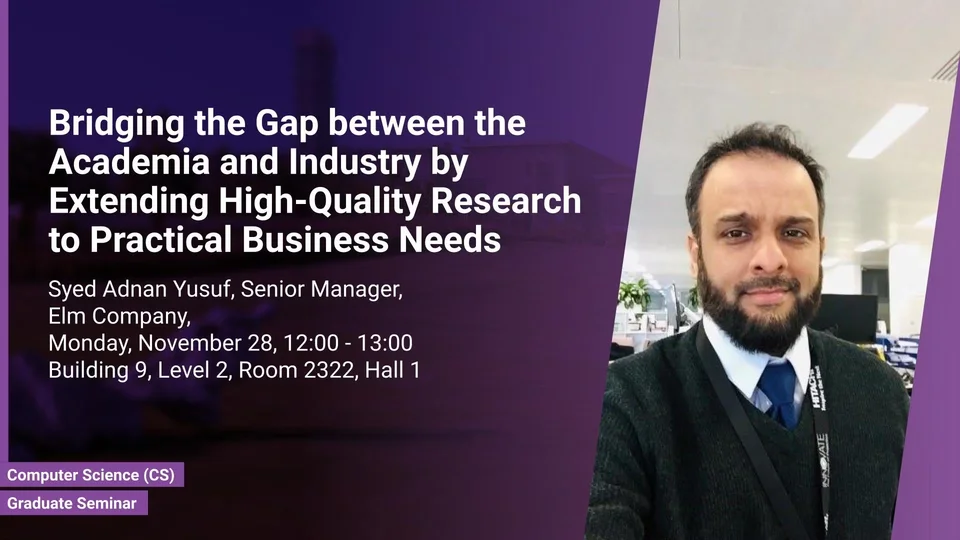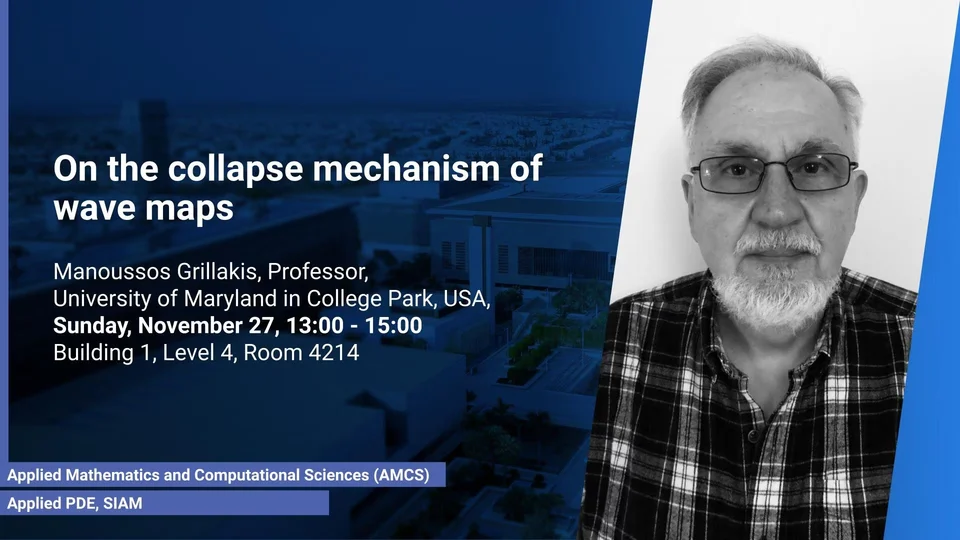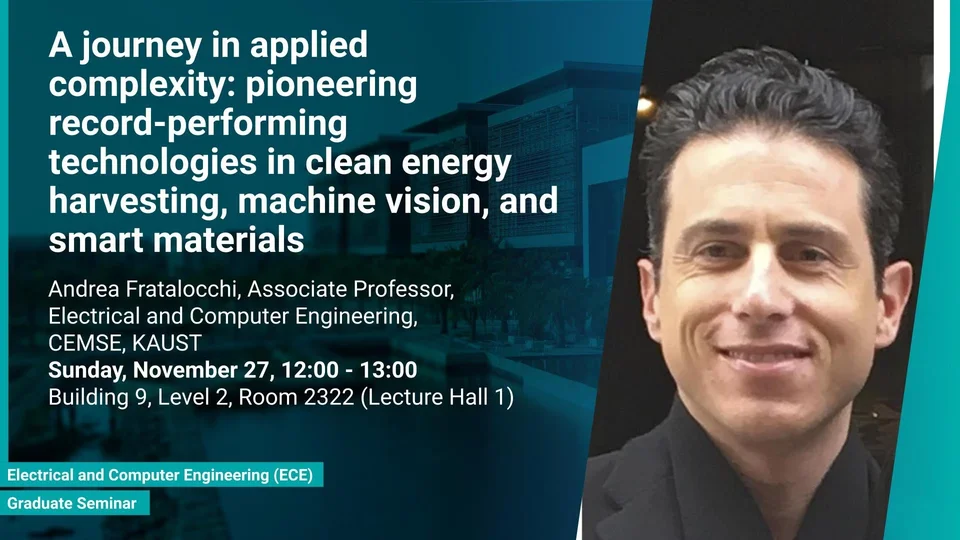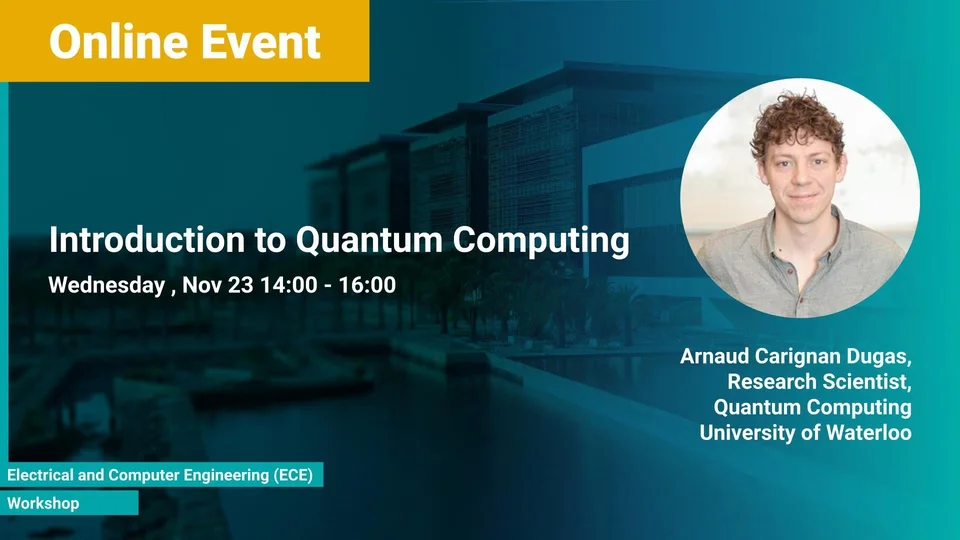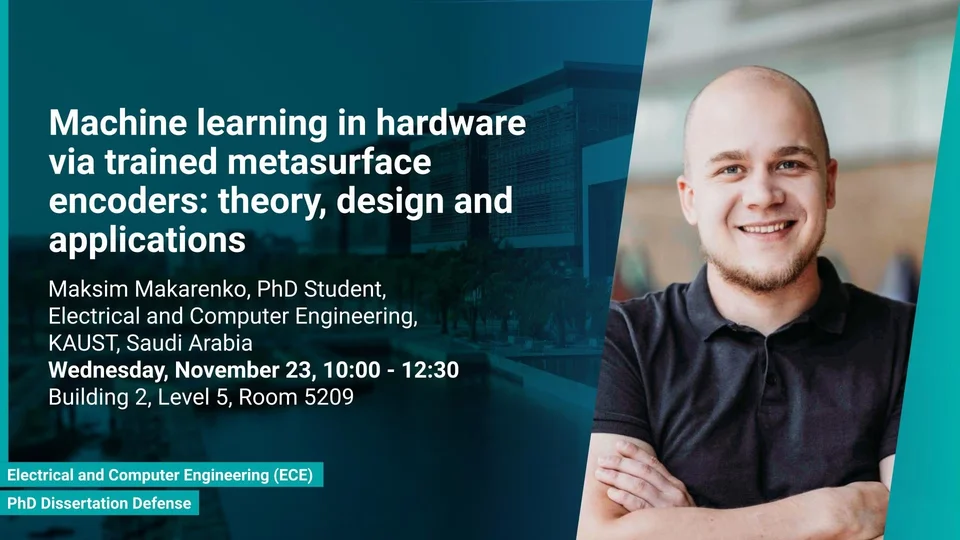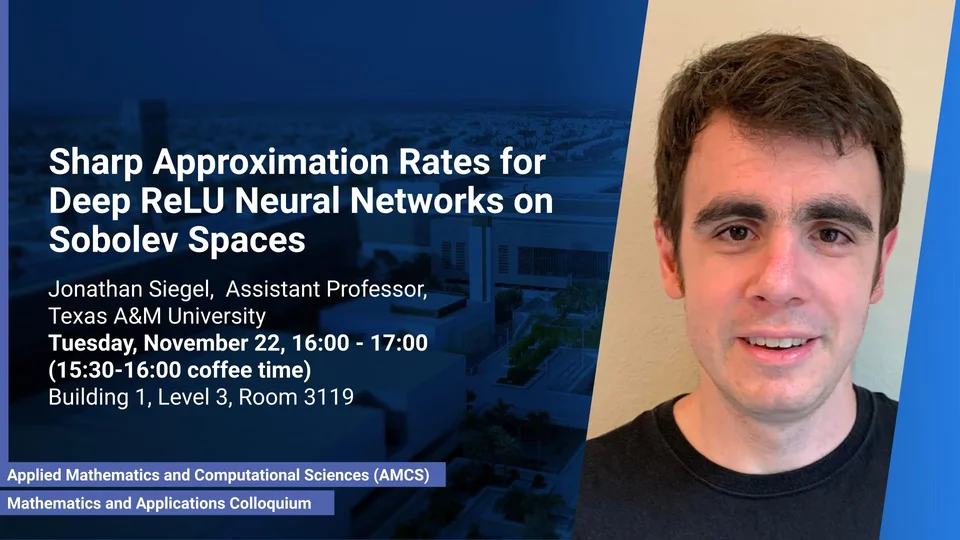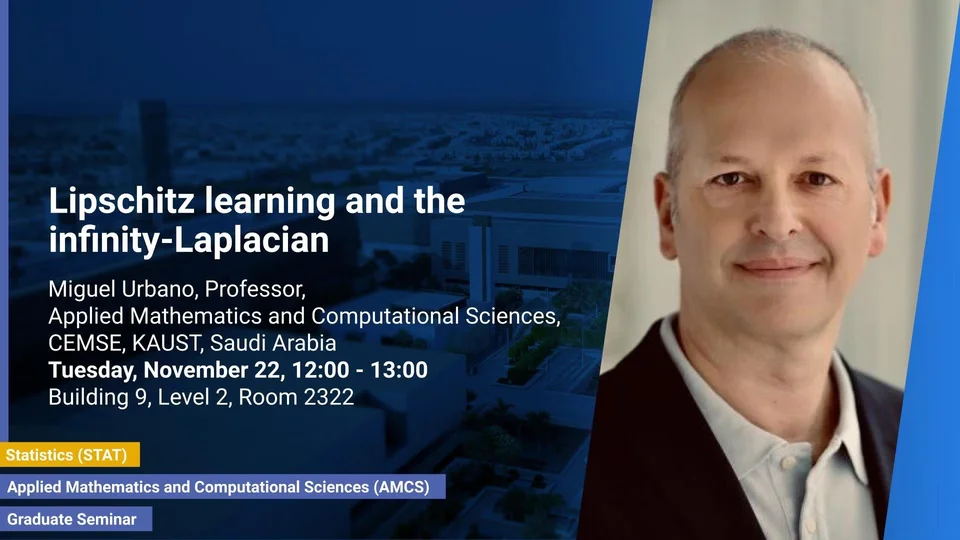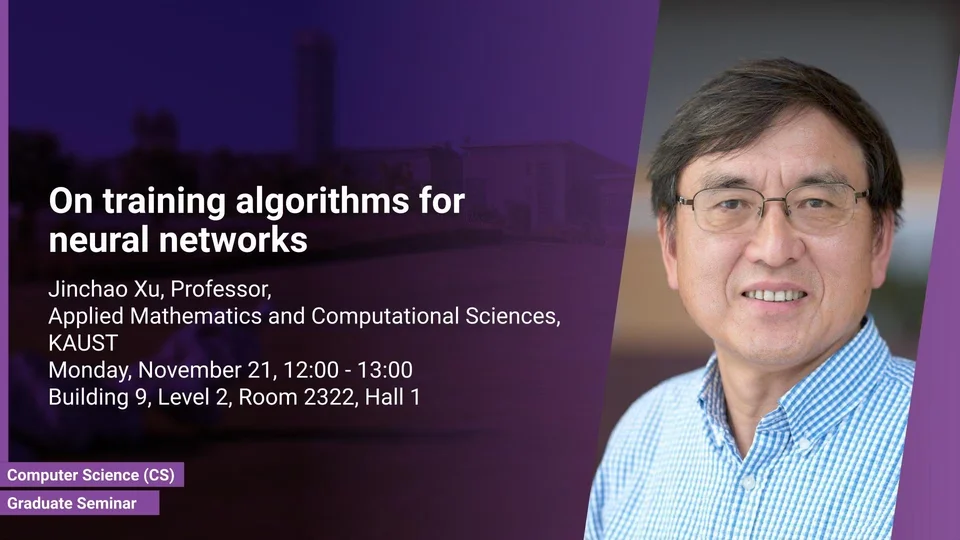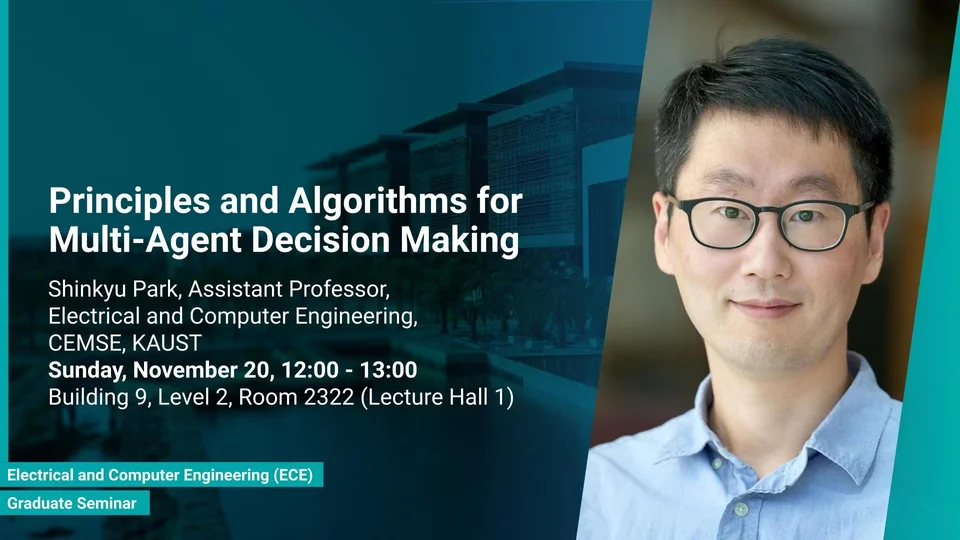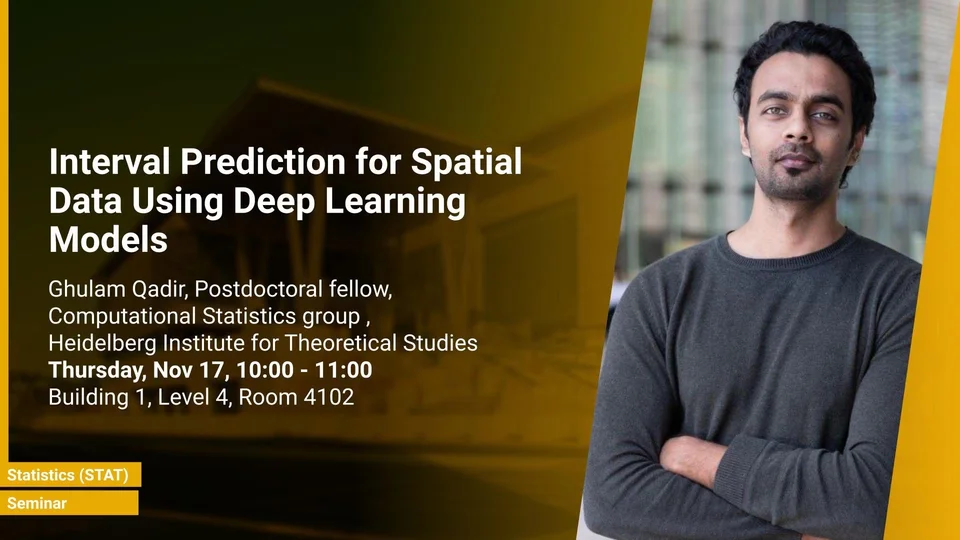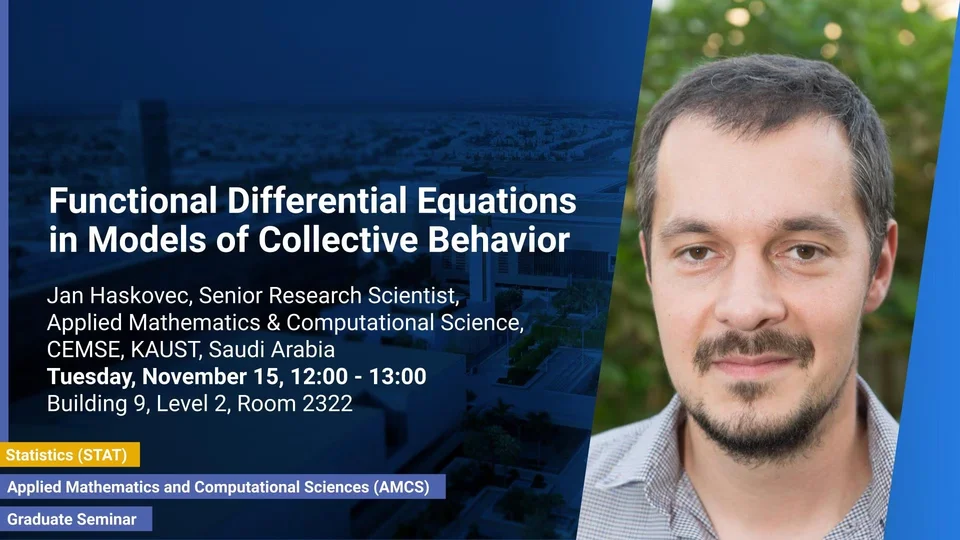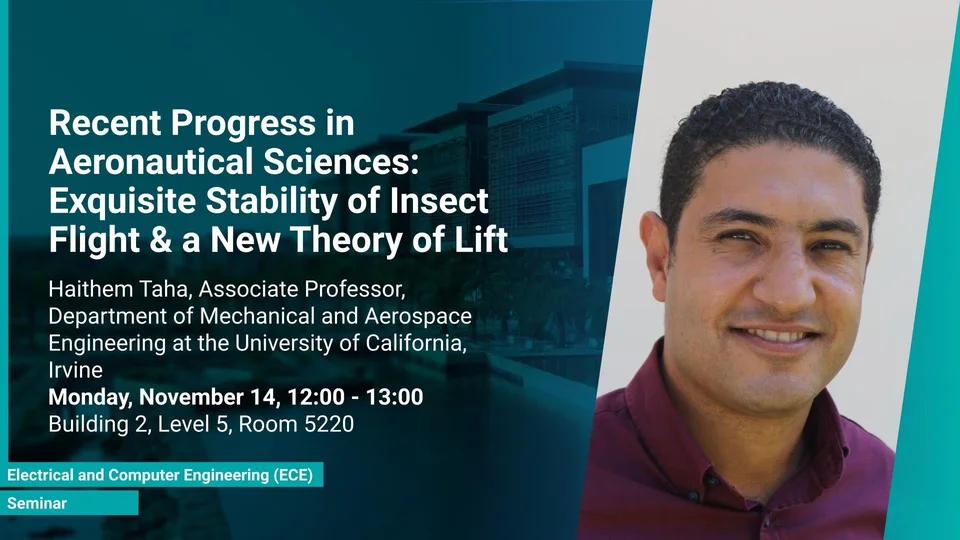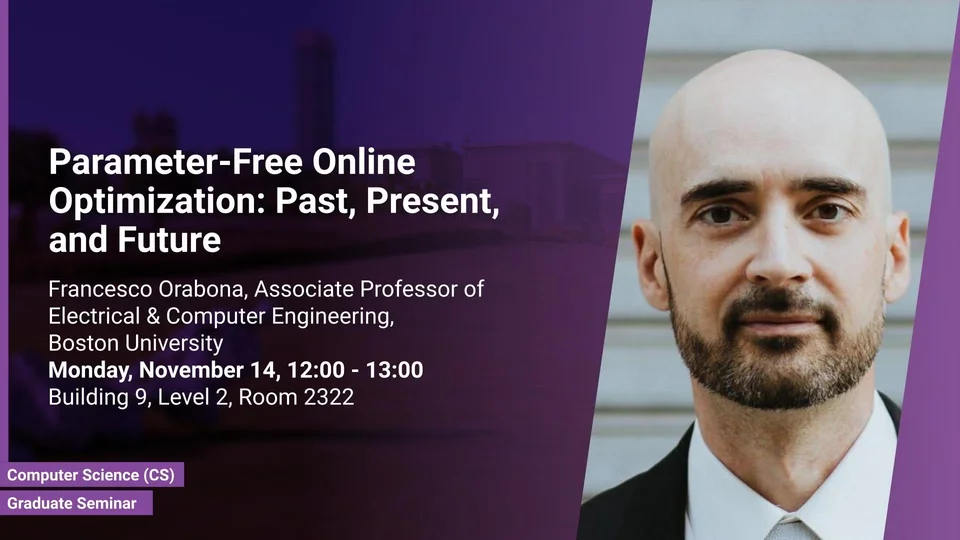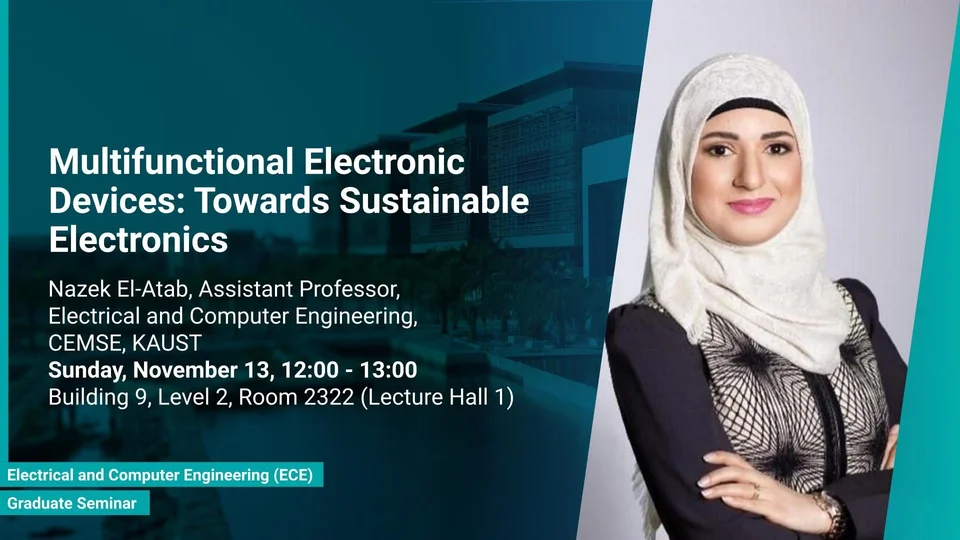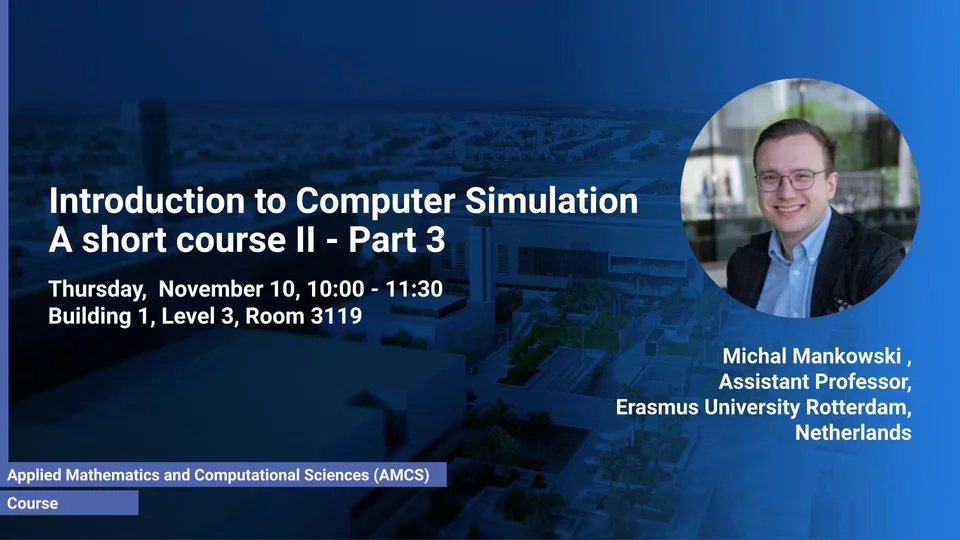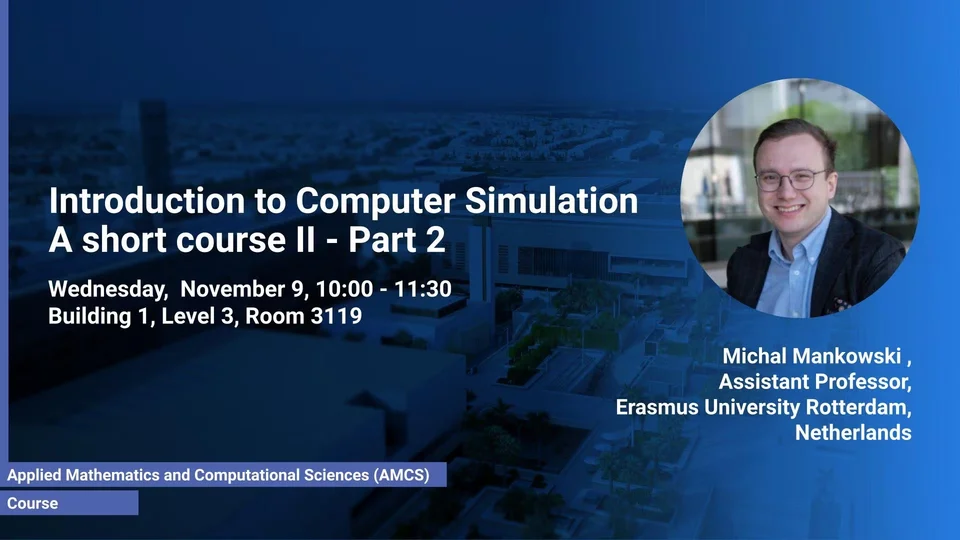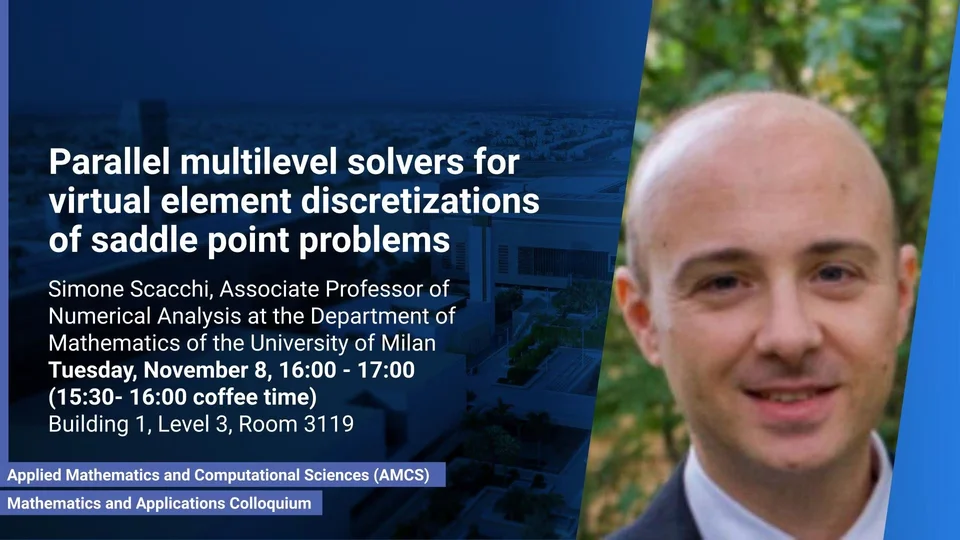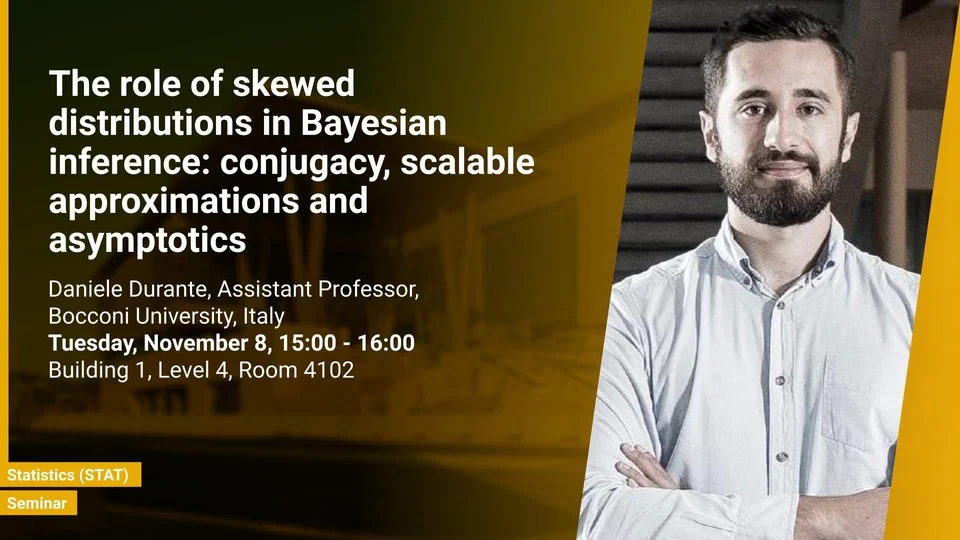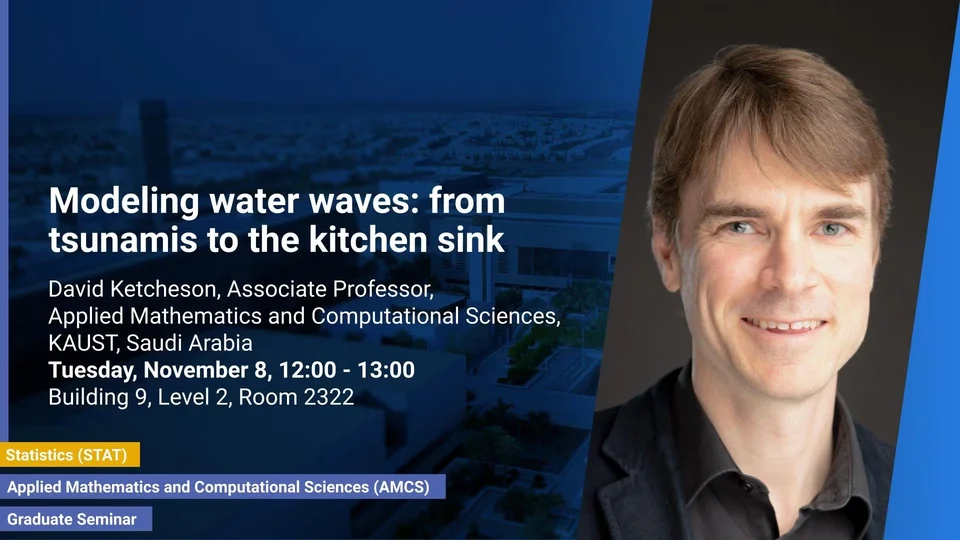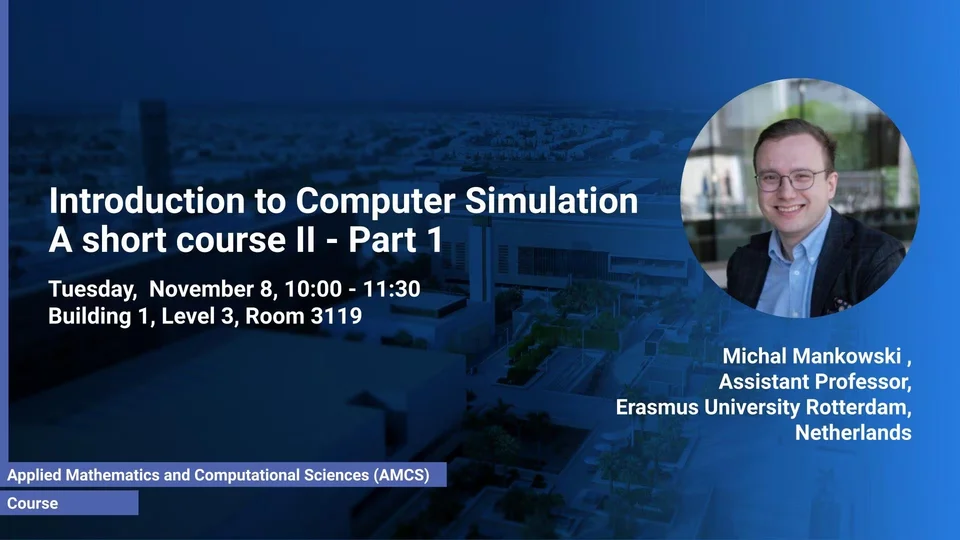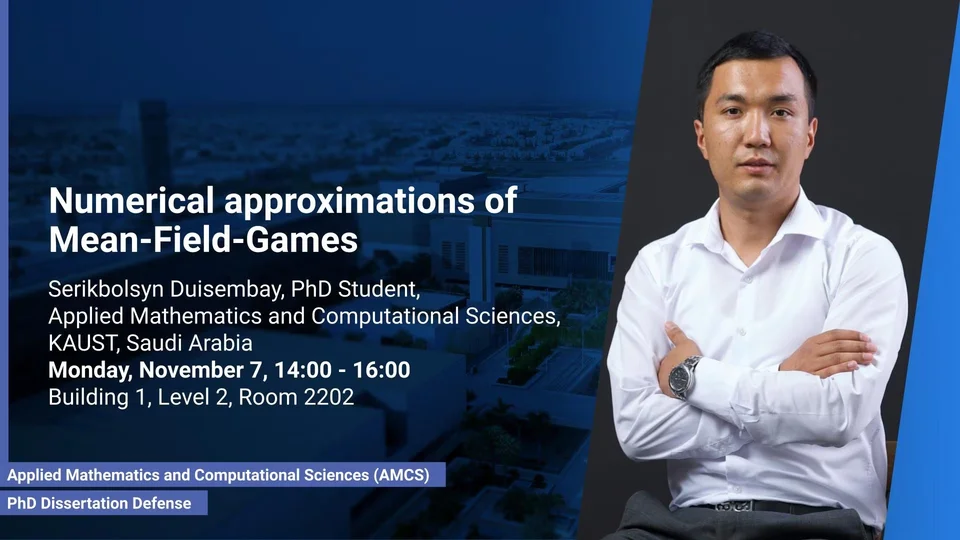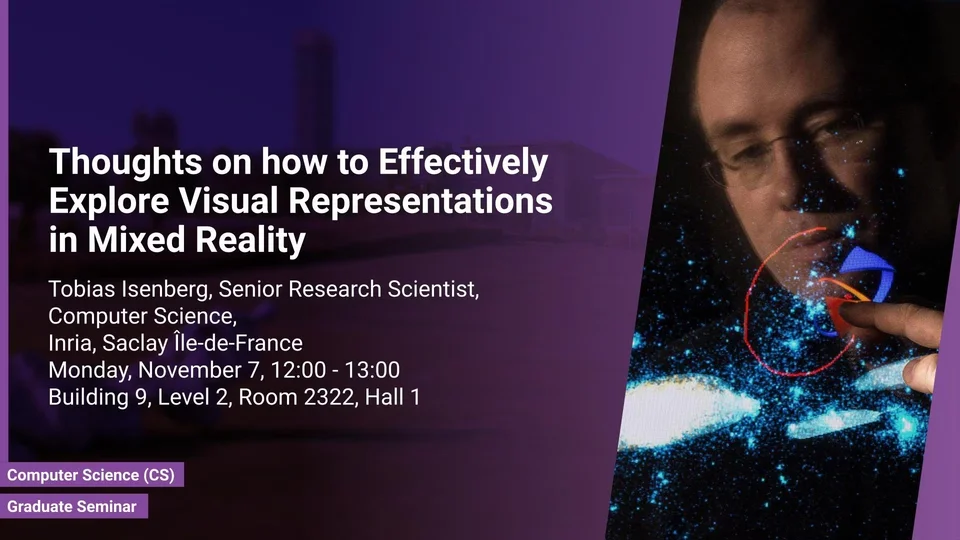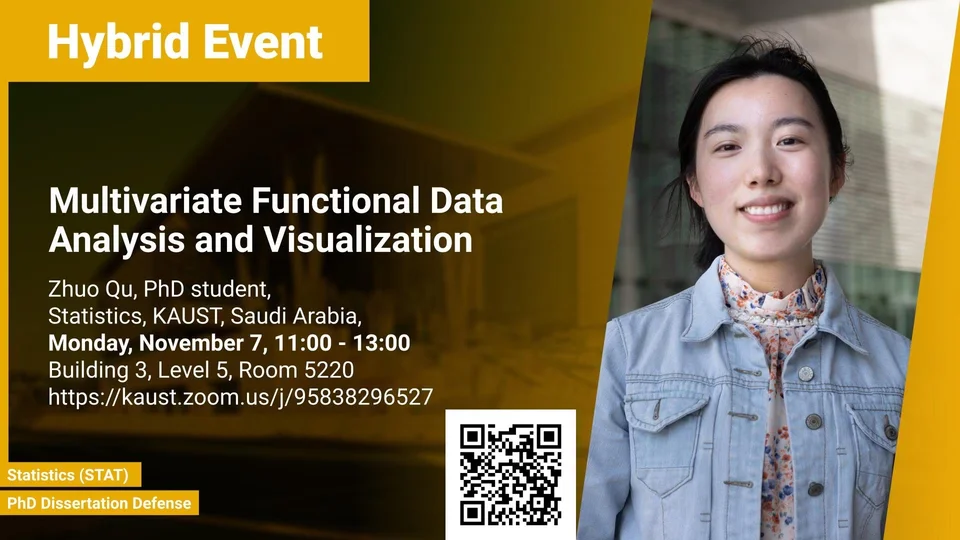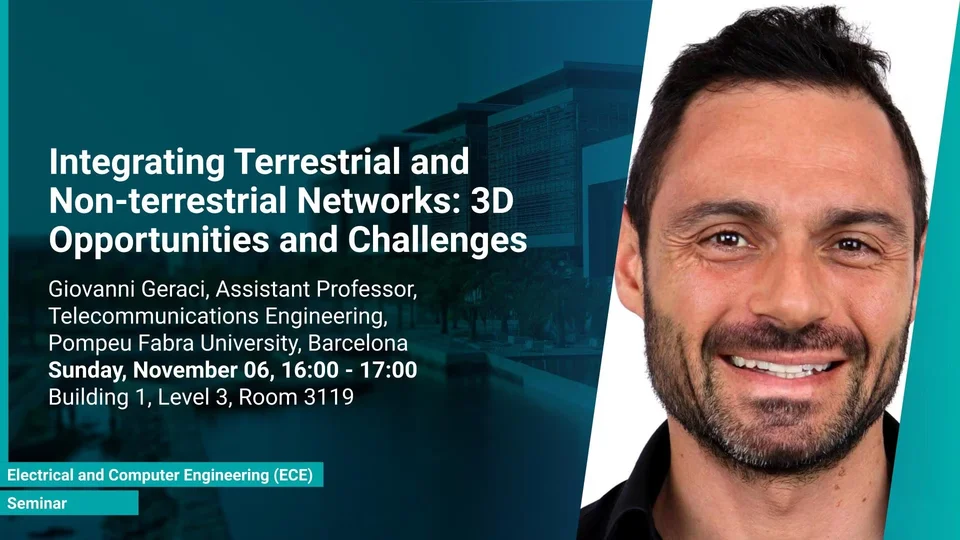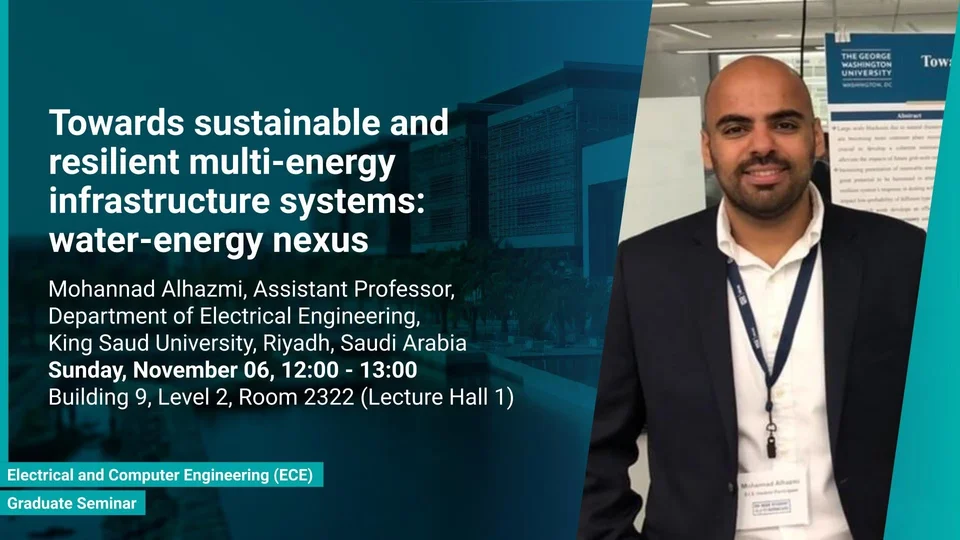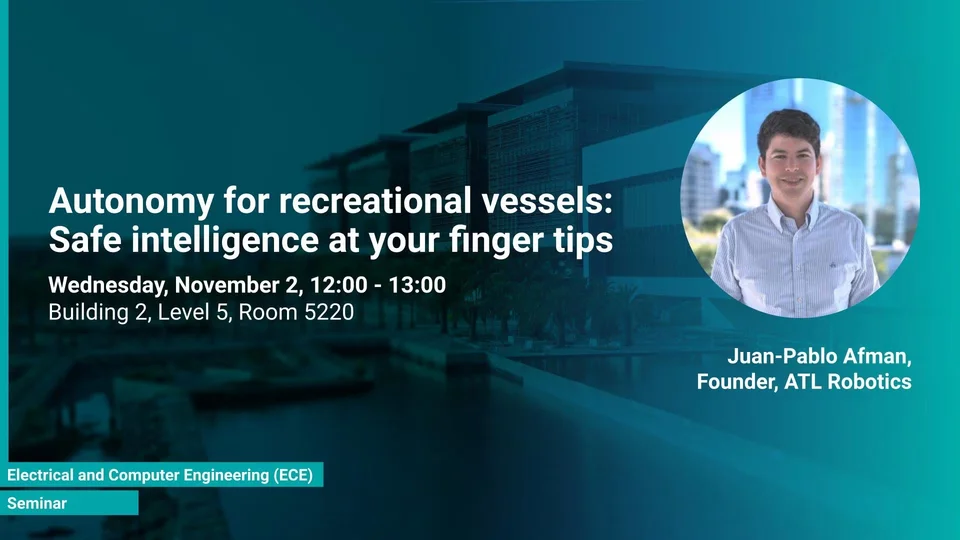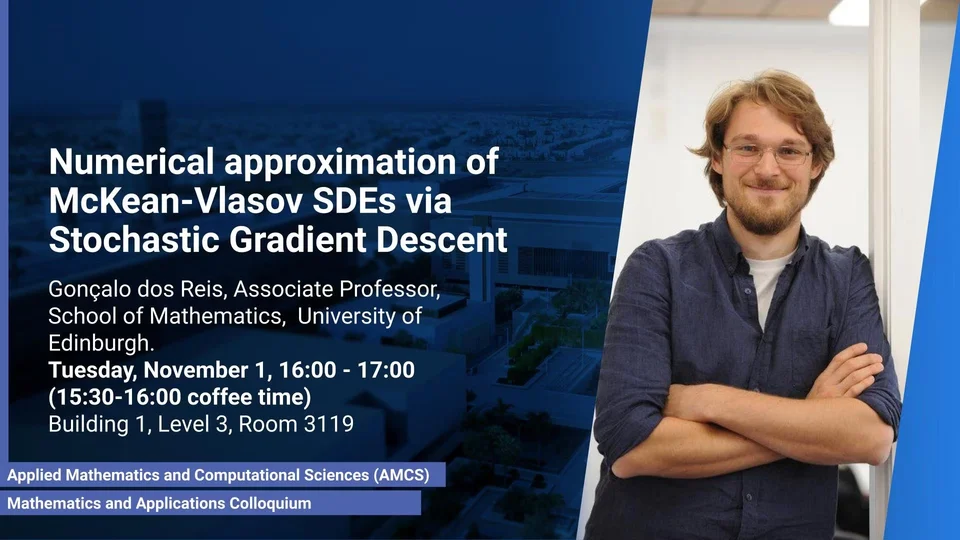Events
Jan 15 - Jan 21, 2023
Jan 8 - Jan 14, 2023
Nonlocal Aggregation-Diffusion Equations: entropies, gradient flows, phase transitions and applications
Prof. Jose Carrillo, Department of Mathematics, University of Oxford, UK
B2 L5 R5209
Challenges and Recent Progress on AlN Growth by the PVT Method
Prof.Liang Wu, Shanghai University and CEO of Ultratrend Technologies Inc.
B3 L3 R3334
Jan 1 - Jan 7, 2023
Dec 11 - Dec 17, 2022
Monodromy and approach to equilibrium for viscoelastic models allowing microstructure
Prof. Sir John Ball, Department of Mathematics, Heriot-Watt University, Edinburgh, UK
B3 L5 R5220
Liquid crystals from a mathematical perspective
Prof. Sir John Ball, Department of Mathematics, Heriot-Watt University, Edinburgh, UK
B1 L4 R4102
The Wild West of NLP Modeling, Evaluation, and Documentation
Dr. Nazneen Rajani, Research Lead, Hugging Face, California
B2 L5 R5220
Dec 4 - Dec 10, 2022
On the role of pair correlations in the evolution of Bose-Einstein condensates
Prof. Manoussos Grillakis, Department of Mathematics, University of Maryland in College Park.
B1 L3 R3119
Characterization of Natural Bacterial Pathogens with Genomic and Predictive Modelling
Dr. Danesh Moradigaravand, Infectious Disease Epidemiology lab, BESE, KAUST
B3 L5 R5209
Nov 27 - Dec 3, 2022
Nov 20 - Nov 26, 2022
Nov 13 - Nov 19, 2022
Parameter-Free Online Optimization: Past, Present, and Future
Francesco Orabona, Associate Professor of Electrical and Computer Engineering, Boston University
B9 L2 R2322
Nov 6 - Nov 12, 2022
Introduction to Computer Simulation - A short course II - Part 3
Prof. Michal Mankowski, Assistant Professor of Operations Research, Erasmus University Rotterdam, Netherlands
B1 L3 R3119
Introduction to Computer Simulation - A short course II - Part 2
Prof. Michal Mankowski, Assistant Professor of Operations Research, Erasmus University Rotterdam, Netherlands
B1 L3 R3119
Introduction to Computer Simulation - A short course II - Part 1
Prof. Michal Mankowski, Assistant Professor of Operations Research, Erasmus University Rotterdam, Netherlands
B1 L3 R3119
Integrating Terrestrial and Non-terrestrial Networks: 3D Opportunities and Challenges
Giovanni Geraci, Assistant Professor, Pompeu Fabra University, Barcelona
B1 L3 R3119
Towards sustainable and resilient multi-energy infrastructure systems: water-energy nexus
Mohannad Alhazmi, Electrical Engineering, King Saud University
B9 L2 R2322 H1
